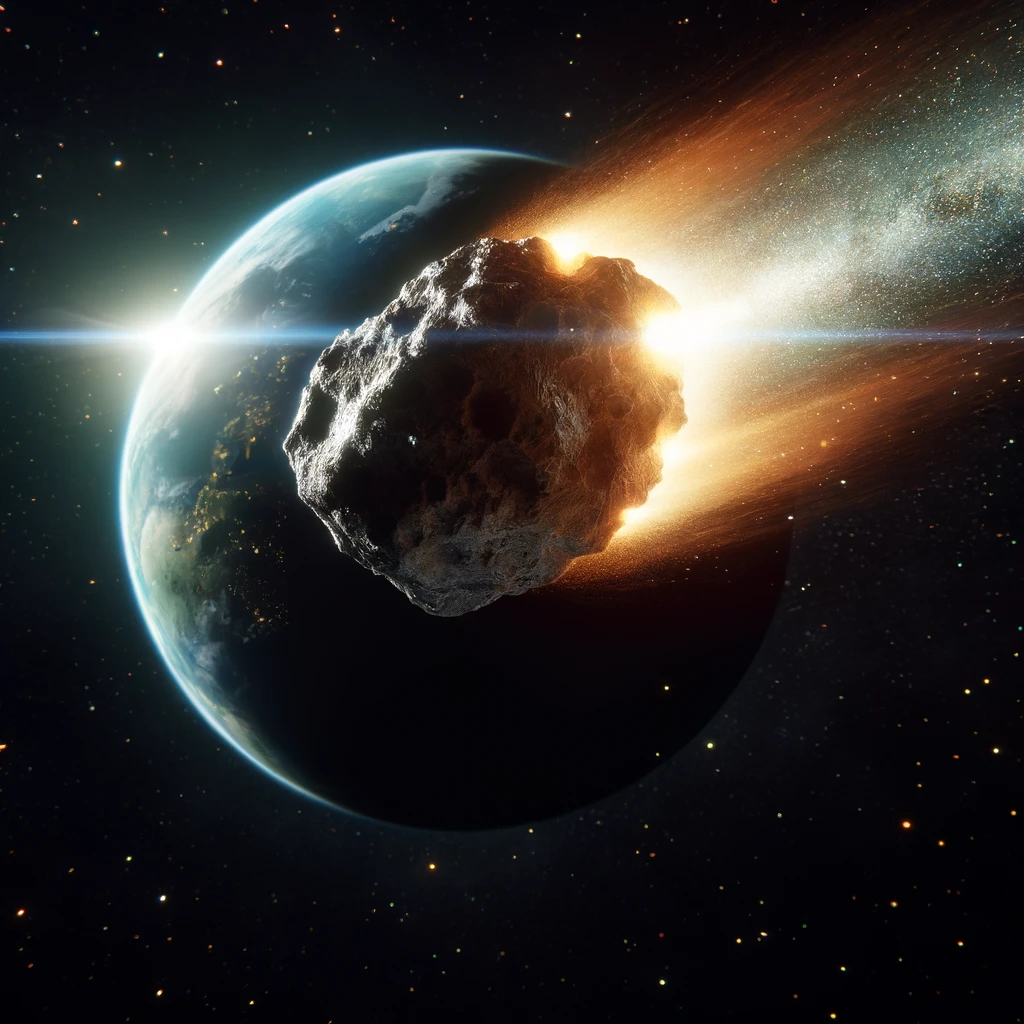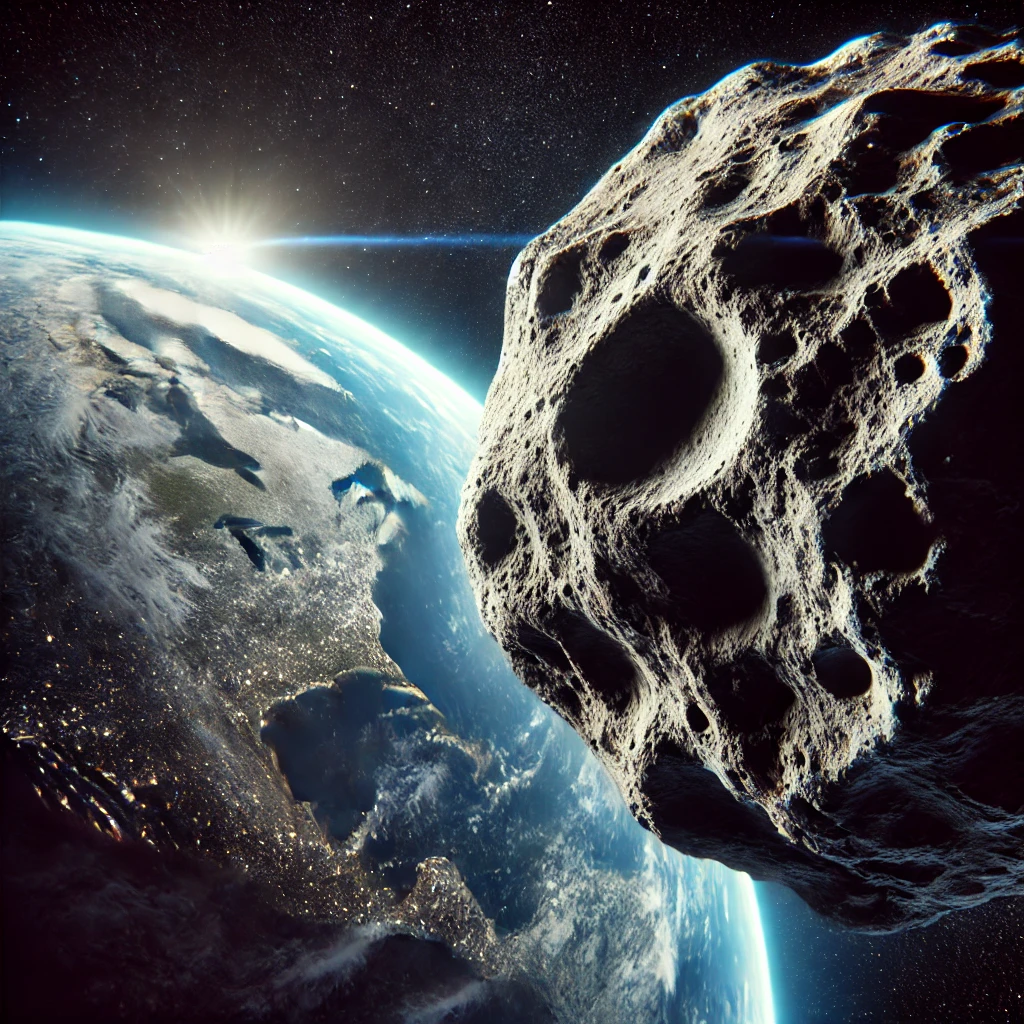NASA has sounded the alarm on a potentially catastrophic event, as asteroid 2024 RV50, described as being the size of a massive stadium, hurtles toward Earth at an astonishing speed of 16 km/second. Set to pass Earth on October 18, 2024, this massive space rock will come uncomfortably close—just 7.42 million kilometers away, a distance that may seem vast but, in cosmic terms, is alarmingly narrow. Even a minor deviation in its path could trigger catastrophic consequences, turning a near-miss into a full-on collision.

The implications of such an impact are nightmarish. A collision of this magnitude could unleash seismic waves, triggering earthquakes, massive tsunamis, and atmospheric disruptions that would throw weather patterns into disarray. Millions could be affected as cities brace for the worst-case scenario. Though NASA emphasizes that the asteroid’s trajectory is being closely monitored and the risk of a direct collision remains low, the potential for a last-minute shift casts a shadow of uncertainty. Could this be Earth’s next major cosmic disaster?
Drawing eerie parallels to the unexpected Chelyabinsk meteor event, experts warn that we cannot underestimate the unpredictable nature of space objects. Back in 2013, a smaller meteor burst over Russia without any warning, shattering windows and injuring over a thousand people. Now, with 2024 RV50 racing toward us, the sense of déjà vu is hard to ignore. Are we once again underestimating the threat from above, and is NASA truly prepared for a rapid response if the worst unfolds?
Despite reassurances from scientists, the sheer size and speed of 2024 RV50 raise legitimate fears. The asteroid could potentially deliver a blow far greater than any nuclear explosion, turning vast areas into wastelands. This event has reignited debates about Earth’s readiness for cosmic threats. Should we be investing more in planetary defense, and are existing early-warning systems enough to detect last-minute changes in the asteroid’s path?
As October 18 looms closer, the world watches and waits, hoping this cosmic visitor passes by without incident. The stakes are sky-high, and the margin for error is terrifyingly small. For now, all we can do is stay informed and hope that this encounter with 2024 RV50 serves as a wake-up call for future preparedness. Keep your eyes on the sky and stay tuned to Rougee News for real-time updates on what could be our next great cosmic challenge. 🌍🪐



